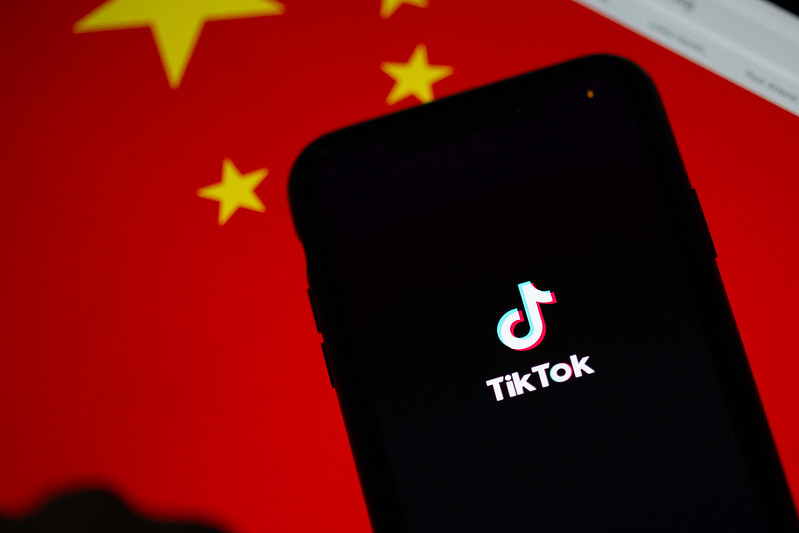The Drama with TikTok Posted by sasha on Aug 12, 2020 in Culture
Unless you’ve been living under a rock recently, you’re probably familiar with TikTok. Known as Douyin (抖音 dǒu yīn) in Chinese, the popular video-sharing social network has been making a lot of headlines these days as the US government is considering banning it. Before we address the drama with TikTok, let’s answer an important question for those not familiar with the app.
What is TikTok?
Douyin is owned by the Chinese technology conglomerate ByteDance (字节跳动 zì jié tiào dòng). The app came out for the Chinese market about four years ago under the name A.me. It is used to create short videos to share, usually focused on lip-synching, dancing, comedy, or challenges.
While it caught off rather quickly in China, ByteDance wanted to reach a global audience (全球观众 quán qiú guān zhòng). They changed the name to Douyin and launched an international version known as TikTok in September 2017. To break into the US market, ByteDance purchased a start-up called musical.ly which was founded in Shanghai and had an office in California (加利福尼亚州 jiā lì fú ní yǎ zhōu). It was already a very popular app, with 200 million users by May 2017.
Next came the merger of musical.ly and TikTok in August 2018. This immediately gave TikTok the worldwide audience it had been seeking. Before too long, all sorts of celebrities were using it. They even announced a partnership with the NFL.
It became the most downloaded app in the US just a few months later, and it passed a billion downloads worldwide early in 2019. This wasn’t even including Android downloads in China, so that number was even higher! People in over 150 countries around the world currently use the app.
The idea behind TikTok is pretty simple. You can choose background music from a variety of genres to start. By the way, if you’re not familiar with music genres in Chinese, be sure to check out this post.
You then record a 15-second video that you can slow down or speed up and add filters to. Many compare TikTok to the now-defunct Vine with a few more features. Even if you have no experience with video editing, you can make some pretty professional-looking videos.
If you’re not very familiar with TikTok, this video from ABC News in Australia does a great job of introducing it:
Once you upload your video, other users can interact with it. The app then uses artificial intelligence (人工智能 rén gōng zhì néng) to display a personalized feed to each user. This is based on the content you liked, interacted with, or searched for.
To be completely honest, I’m not a TikTok user nor have I ever been one. I feel like I have enough social media on my plate on a daily basis with Facebook, Instagram, and YouTube. Having just spent a week with my college-aged brother and his friend, though, I am now very familiar with the app and the massive following it has with the younger generation.
The US Government’s Problem with TikTok
Towards the end of 2019, security concerns led most branches of the US Military (美军 měi jūn) as well as the Pentagon (五角大楼 wǔ jiǎo dà lóu) to ban the use of TikTok on government-issued devices. They also recommended that personnel uninstall the app from personal devices as well as those of their family members.
The issue escalated further last week, when President Trump signed an executive order that bans both TikTok and WeChat in 45 days if they are not sold by the Chinese parent companies. In particular, Trump has been calling on Microsoft (微软 wēi ruǎn) to purchase the wildly popular video-sharing app. Part of the executive order reads:
“TikTok automatically captures vast swaths of information from its users, including Internet and other network activity information such as location data and browsing and search histories. This data collection threatens to allow the Chinese Communist Party access to Americans’ personal and proprietary information — potentially allowing China to track the locations of Federal employees and contractors, build dossiers of personal information for blackmail, and conduct corporate espionage.”
Another concern with TikTok is that of censorship and content manipulation, especially when related to information about the treatment of Uyghurs and the protests in Hong Kong. It has actually been banned in several countries over the past year, including India.
Just a few days after the signing of the executive order, the Wall Street Journal reported that TikTok had sidestepped Google policy, allowing them to collect data and track users without giving them the option to opt out. TikTok says it doesn’t share data collected with the Chinese government and also claims that American companies such as Facebook actually collect more personal data than they do.
For an interesting perspective on the issue, check out this clip from Vice News:
So what does the future hold for TikTok? Only time will tell. The deadline from the president’s recent executive order will happen on September 15th. In the meantime, the debate will continue between the app’s passionate users and those who are opposed to it.
Do you use TikTok? What do you think about the executive order signed by President Trump? Do you think it should be banned in the US? Leave a comment and let us know!

Build vocabulary, practice pronunciation, and more with Transparent Language Online. Available anytime, anywhere, on any device.





Comments:
Lorraine Zheng:
I think trump has definitely gone over the top with banning this and uk following suit ? We should all make a stand on this whats next wechat ?????